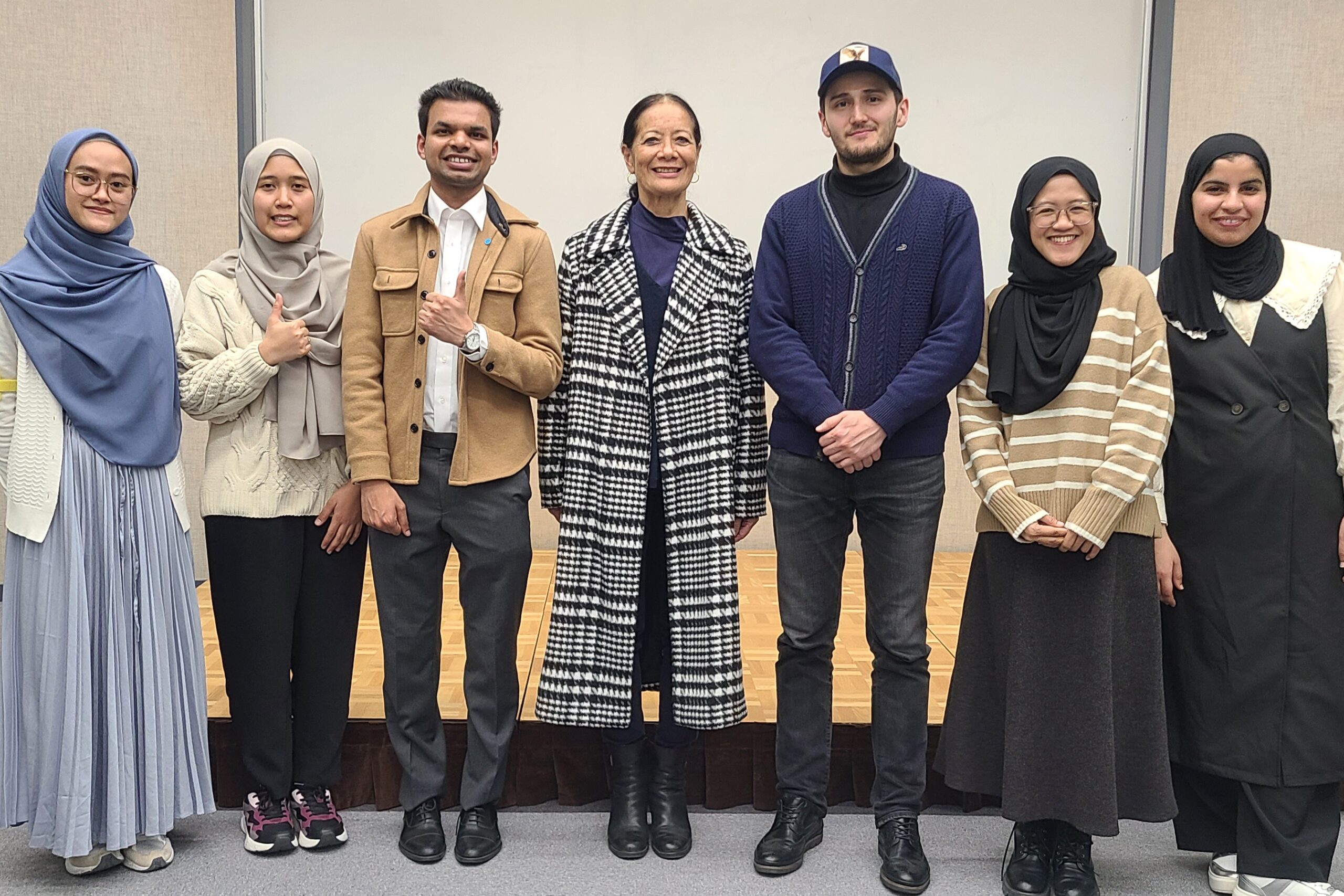What she didn’t know was that a few days in Hiroshima would provide a light bulb moment for a social entrepreneurial project that would join the dots between peace, cultural heritage, sustainable business and community-empowerment.
Wulan’s research work is focused on a cultural heritage site in West Sumatra, Indonesia, where a home stay concept for tourists was developed by local women, controlled and run by the community to preserve the heritage site while at the same time providing a sustainable business for the community.
Attending a training in March held by the Positive Peace Society of Hiroshima University in partnership with the Institute for Economics & Peace (IEP), Wulan was exposed to the 8 Pillars of Positive Peace, which provided the moment of clarity for her research in West Sumatra.
Through the 8 Pillars, it reaffirmed the need for the project to include a high level of human capital, distribution of economic resources, a sound business environment, and acceptance of the rights of others for the community to take control of both how to build business entrepreneurship for income, while also controlling the heritage impact.

The Positive Peace training in Hiroshima on March 4 and 5 took place at the Central Library Hall of the Hiroshima University, and was included participants coming from more than 15 countries including Brazil, Djibouti, Malawi, Ghana, Nigeria, Egypt, Ukraine, Tunisia, Oman, Tajikistan, India, China, Japan, Myanmar, Laos, Philippines, Malaysia, and Indonesia. Besides Hiroshima University students and faculty members, some presenters of the 3rd NERPS Conference from outside Hiroshima also took part in the training.
During the two-day training, participants learned the concept of peace, the framework of Positive Peace, global data and trends of peace, and much more through fun and engaging activities such as Pillar Island, Privilege Walk, the Connections game of systems thinking.
Participants engaged in lively group discussions applying the eight pillars of Positive Peace to collectively design peace and development projects. Among these activities, Pillar Island was the most helpful and interesting for most participants, while the Privilege Walk came as the runner up. Despite really enjoying Pillar Island, the participants also wished that more time could have been allocated for it, so they could get an even better understanding of real-life circumstances in our world depicted by the exercise.
The group discussion activity was no less interesting since thought-provoking ideas and projects on important issues were raised by the participants. It was truly impressive how they were able to deliver their designs in a well-structured presentation, showcasing their comprehensive understanding of what they had learned during the two days of training.
By the end of the workshop, participants shared their thoughts and experiences where some of them said the training had increased their sense of belonging, enlightened them through the power of collaboration, and made them realise that peace is complex, and yet measurable. As they realised that peace is about interconnectedness and highly related to global sustainability and inclusiveness, they became encouraged to do peace starting with themselves as a person and then to put peace into practice with their communities. Others also added that peace is relative as it is based on our respective experiences, and therefore it was necessary to ‘learn to unlearn’ when it comes to Positive Peace.
All participants are confident to lead discussions on problem solving in their community and designing peace interventions upon completing the training, and most of them found the experience to be extremely positive. They were also satisfied with the quality of training in terms of the trainer, Patricia Garcia (IEP), the activities, materials and resources, as well as the overall organisation.
The final word of feedback came from Wulan.
“Peace is about interconnectedness and closely related to sustainable development,” she said. “Peace starts from myself and I will spread it to the world.”